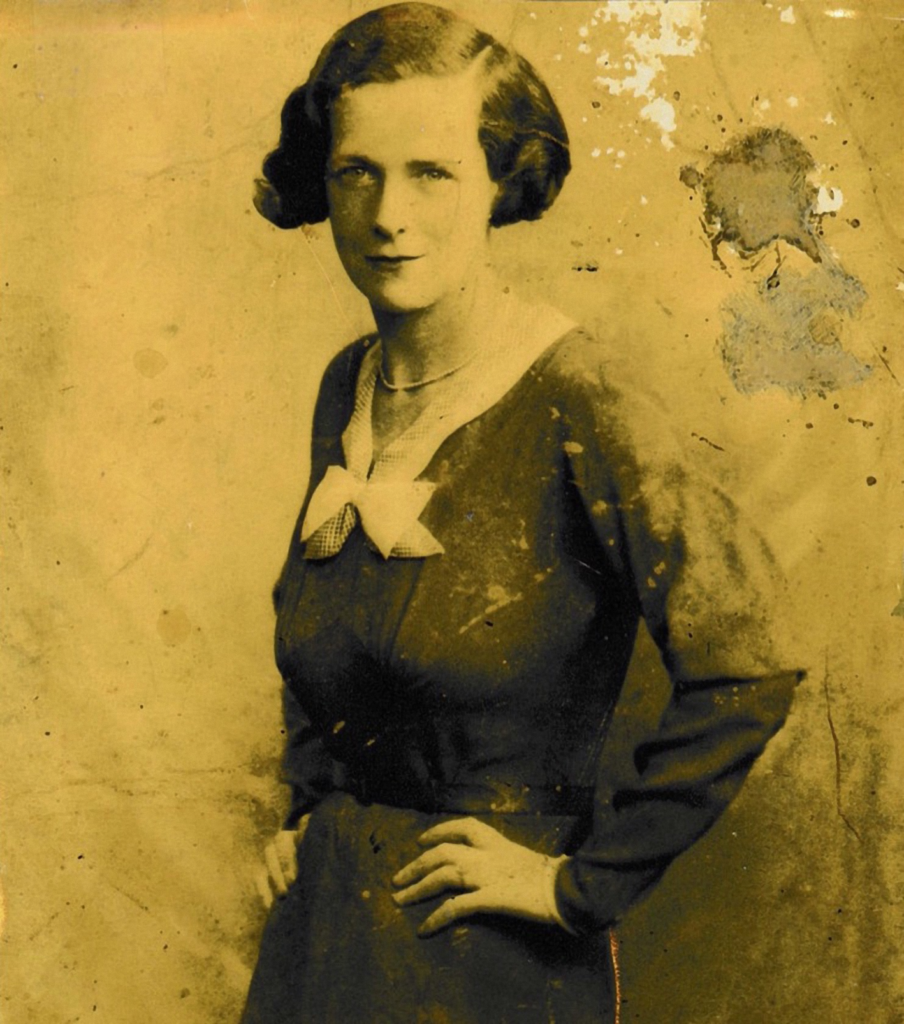By Joseph E.A. Connell Jr

Oonah Keogh was born in Dublin in 1903 and grew up on Shrewsbury Road, Ballsbridge. Her family placed a high value on education, which led to Oonah’s attending excellent schools both in Ireland and Britain. From a young age she had been very aware of the imposing and male-dominated financial world. Her father, Joseph Keogh, of Joseph Keogh & Co. Stockbroking, was himself famous for being the youngest bank manager in Ireland, in the 1880s at the tender age of 24 at the Hibernian Bank in Swinford, Co. Mayo.
Oonah studied in London for a time before spending two years travelling around Europe and North Africa. During this period she would discover new cultures, delve into local traditions and learn French fluently. Following her travels, she returned to London but before long received an invitation from her father to begin work for his firm. In her day it was difficult for women to embark on a career, but this offer represented an additional challenge, as the Dublin Stock Exchange had never before admitted a woman. In fact, no stock exchange ever had.
Oonah applied anyway and had two major factors in her favour. The first was that she was extremely capable. Her education stood to her, and those in charge of the process couldn’t deny that she had all the necessary skills. The second factor was the constitution. At the time, the Irish Free State was just beginning, and its new constitution was in full force. Article 3 guaranteed equality of opportunity to all of Ireland’s citizens, regardless of gender, and thus Oonah could not be rejected solely for being a woman. In Oonah’s own words, the whole affair caused ‘consternation and sensation’, but after three weeks she was admitted all the same. On 4 May 1925 Oonah Keogh became the first woman in the world to join a stock exchange.
Oonah Keogh lived in a time when the very idea of difference was under attack. Women were resigned and restricted to passive, supplementary roles, dominated by the clergy and a patriarchal State. Even if Oonah’s story invariably begins with ‘Who was she?’, her life, posthumously rescued from obscurity, ventured beyond the status quo. In one interview she spoke of how difficult it was for her to make inroads into the business:
‘One of the disadvantages in those days was that women did not socialise with men in lounges of pubs. When the men retired to Jury’s to relax after transacting business I could not accompany them. And even when I went to the races with my father it was the same. He would go to the bar for a drink, I would have to slip off for afternoon tea.’
Oonah Keogh’s talents would include managing ‘fantastically large sums’ of other people’s money and building the family business to a roaring trade, until a family dispute and a financial depression resulted in her resignation from Joseph Keogh & Co. and a subsequent court case with Hibernian Bank.
Oonah Keogh, a true Irish pioneer, passed away in 1989.
Joseph E.A. Connell Jr is the author of The Terror War: the uncomfortable truths of the War of Independence (Eastwood Books, 2022).
